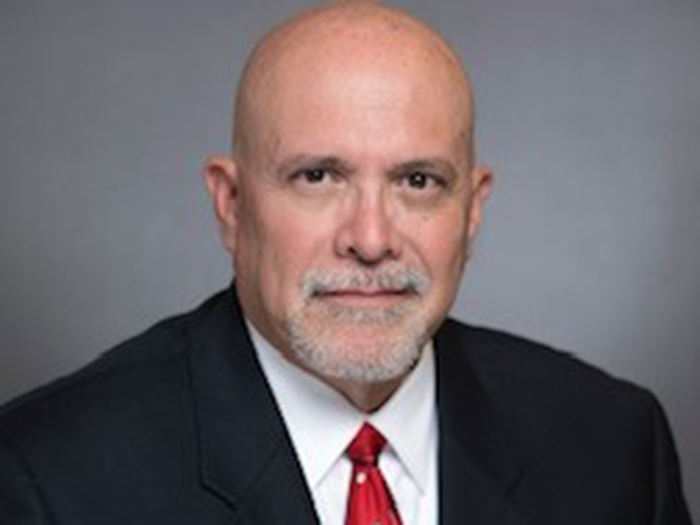3 Lessons from Navigating Interstate Workers’ Compensation Court Cases

From injured workers filing claims in more than one state to conflicting doctrines on subrogation, cross-jurisdictional workers’ compensation cases can be complex for injured workers and employers alike.
Because of the difficulties of interstate claims, employers who do business in more than one state need to be on top of each state’s laws and to understand where they may conflict.
Here are three cross-jurisdiction workers’ compensation cases that prove that it pays to have a solid grasp of other state’s laws.
1) Former NFL Player Filed Workers’ Comp Claim in State Where He Lives, Not Where He Played
The Case: Defensive Tackle Larry Tripplett played for the Indianapolis Colts, the Buffalo Bills and the Seattle Seahawks during his six-year NFL career. After playing 110 games, he retired and was declared 67% permanently disabled.
In 2002, he filed a cumulative injury workers’ compensation claim in his home state of California, alleging injury to multiple body parts throughout the course of his football career. He only played two games in the state and he never played for a California NFL team.
Each of the football teams and insurers denied his claim and Tripplett filed the suit, Larry C. Tripplett v. Workers’ Compensation Appeals Board, Indianapolis Colts et. al. which claimed that because he was a California resident when he signed with the Colts, he was entitled to file a workers’ compensation claim in the state.
Scorecard: The California Court of Appeals ruled that there was not significant evidence that Tripplett signed his contract in California and that, given his injury was cumulative and did not occur at a particular game, the two games he played in California did not directly cause his disability.
Takeaway: For companies that do business with workers living in different states, the location in which an employee signs their contract can determine where they can file a workers’ compensation claim.
2) Medical Providers Have Six Years to File Claims in New Jersey
The Case: In 2012, a legislative amendment to the New Jersey Workers’ Compensation Act granted the Division of Workers’ Compensation exclusive jurisdiction over claims brought by medical providers for the treatment of injured employees.
When the statute was amended, however, the legislature did not address whether the two-year statute of limitations to file claims that the Division of Workers’ Compensation used for claimants or the six-year statute of limitations that the state applies for suits on contracts.
This issue was tested in 2018-2019 case The Plastic Surgery Center, PA. v. Malouf Chevrolet-Cadillac, Inc., in which several medical providers, including the out-of-state The Plastic Surgery Center, filed petitions with the Division of Workers’ Compensation for treatments to injured workers at Malouf Chevrolet-Cadillac Inc., Leone Industries and Café Bayou.
Each of the petitions was filed more than two years after the worker’s injury, but less than six years from the date that they received treatment.
Given that some of the plaintiffs were out-of-state providers, some legal experts speculated that ruling in favor of the plaintiffs would continue to encourage out-of-state providers to open satellite offices in New Jersey in order to take advantage of the fact that the state lacks a fee schedule for workers’ compensation treatments.
Scorecard: The Superior Court of New Jersey, Appellate Division, ruled that the six-year statute of limitations for contractors applies to medical providers because the legislature did not explicitly express their intention to have the two-year limitation apply.
Furthermore, they argued that the language of N.J.S.A. 34:15-51, the statute of limitations provisions in New Jersey, does not apply to medical providers because they may give treatment to an injured worker two-years after the date of the accident.
Takeaway: New Jersey’s lack of a fee schedule for workers’ compensation treatments will continue to entice out-of-state providers to open offices in the state to treat workers who were injured in New York or Pennsylvania in order to take advantage of higher reimbursements. A longer statute of limitations will only continue to encourage this.
3) Semi-Truck Driver Seeks Workers’ Compensation Benefits in One State, and Personal Injury Benefits in Another
The Case: South Carolina resident Stephanie Jackson was employed by the Nebraska trucking company Drivers Management, LLC (DM). In 2014, her employers contracted with the Arizona-based company Eagle KMC, LLC to provide her with training in Arizona.
While in Arizona, Jackson was injured after an Eagle driver rolled a semi-truck in which she was a passenger. Jackson applied for and received workers’ compensation benefits in Nebraska from DM, which is self-insured for workers’ compensation.
In 2016, Jackson filed a personal injury suit against Eagle, the driver and the registered owner of the semi-truck in Arizona, alleging several claims including negligence, strict liability and “statutory violations.”
Because DM had a subrogation claim against any third-party recovery, they were also named as a defendant in accordance with Nebraska law.
Eagle argued that Jackson had no legal interest in this claim since under Arizona’s automatic assignment provision, if a person who is entitled to the state workers’ compensation benefits does not file an action against a third person who caused the injury within one year, than the person’s employer or workers’ compensation insurer handles the claim.
The trial court ruled in favor of Eagle, but it was reversed on appeal because Jackson’s workers’ compensation benefits were paid in Nebraska and therefore Nebraska’s laws governed subrogation, lien and assignment rights in this action.
The case was then reviewed by the Arizona Supreme Court in 2019.
Scorecard: The Arizona Supreme Court ruled that the state’s automatic assignment provision did not apply when an employee had already received workers’ compensation benefits under another state’s laws. Instead, the other state’s laws determined the assignment rights of the employer and the employee.
Takeaway: If an employee is injured in another state, it’s important to know which state’s laws take precedent.
Cross-jurisdictional workers’ compensation claims can be challenging for even the most seasoned workers’ compensation professionals.
At the 2019 National Workers’ Compensation and Disability Management Conference & Expo (NWCDC), the break-out session “Cross-Jurisdiction Workers’ Compensation Issues” will dive into some of the common challenges. &
About the National Workers’ Compensation and Disability Conference® & Expo:
As the largest National Workers’ Comp and Disability Conference for more than 25 years, NWCDC offers endless opportunities that will propel your workers’ comp and disability management programs forward. With the biggest Expo in the industry, you’ll be able to touch, compare and contrast the newest solutions from leading vendors in every category, and gain knowledge on-the-go at in-depth sponsored sessions on the show floor. Additionally, NWCDC offers valuable networking opportunities so you can make important contacts and share strategies with your peers.
You can also customize your learning experience with breakout sessions in six distinct program tracks: Claims Management, Medical Management, Program Management, Disability Management, Legal/Regulatory, and Technology. Plus, you’ll hear from Risk & Insurance’s Teddy Award winners for excellence in lowering workers’ comp risk.
Learn more about NWCDC and special savings for Risk & Insurance® subscribers here.











